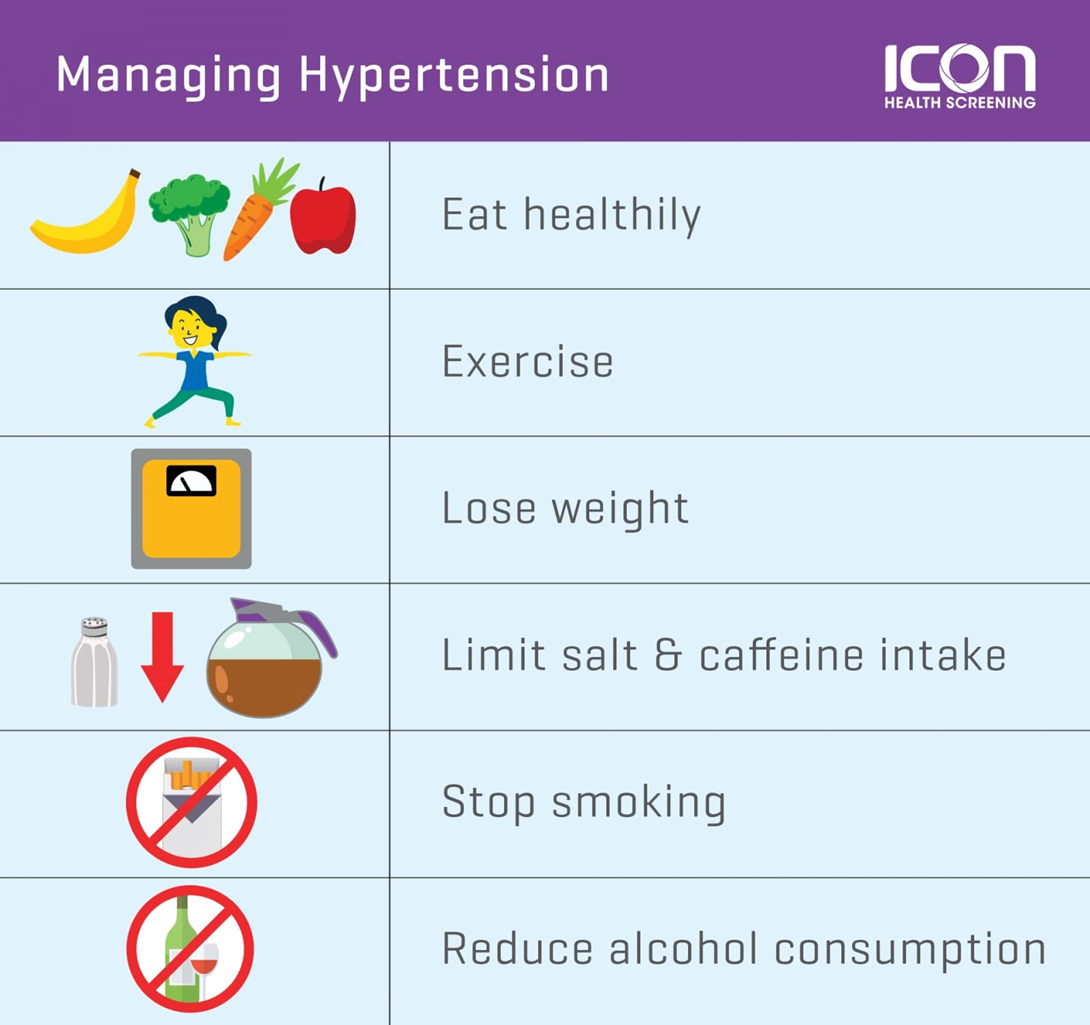The nurse is educating a client about essential hypertension prevention. Which information should the nurse provide? (Select all that apply)
Alcohol consumption will not produce vascular changes.
Weight management is promoted by taking daily walks for thirty minutes.
Salt substitutes can help with maintaining a healthy diet.
Blood pressure readings should be taken at noontime.
Sodium intake can be regulated by rinsing canned foods in water.
Uncontrolled hypertension can lead to renal damage.
Correct Answer : B,C,E,F
Choice B reason: weight management is an important factor in preventing and controlling hypertension. Taking daily walks for thirty minutes can help reduce weight and lower blood pressure.
Choice C reason: salt substitutes can help with maintaining a healthy diet by reducing sodium intake. Sodium intake is associated with increased blood pressure and should be limited to less than 2,300 mg per day.
Choice E reason: sodium intake can be regulated by rinsing canned foods in water. Canned foods often contain high amounts of sodium as a preservative and rinsing them can remove some of the excess sodium.
Choice F reason: uncontrolled hypertension can lead to renal damage. Hypertension can cause damage to the blood vessels and impair the function of the kidneys, leading to chronic kidney disease or failure.
Choice A reason: alcohol consumption can produce vascular changes that increase blood pressure. Alcohol intake should be limited to no more than one drink per day for women and two drinks per day for men.
Choice D reason: blood pressure readings should not be taken at noontime. Blood pressure readings should be taken at the same time each day, preferably in the morning before breakfast or in the evening before dinner.

Nursing Test Bank
Naxlex Comprehensive Predictor Exams
Related Questions
Correct Answer is ["A","C","D"]
Explanation
Choice A reason: This is a correct answer because continuing to monitor the client for signs of an infection is important to detect any recurrence or complication of MRSA infection. MRSA is a type of bacteria that is resistant to many antibiotics and can cause serious skin, soft tissue, bone, joint, or bloodstream infections. The nurse should assess the client's vital signs, wound appearance, pain level, and laboratory results.
Choice B reason: This is not a correct answer because calling the healthcare provider for a prescription for linezolid is not necessary unless the client has an active MRSA infection that requires treatment. Linezolid is an antibiotic that can be used to treat MRSA infections, but it has potential side effects and interactions that need to be considered. The nurse should not prescribe or administer antibiotics without a valid order.
Choice C reason: This is a correct answer because collecting multiple sets of blood cultures for MRSA screening is important to identify any asymptomatic bacteremia or sepsis that could result from MRSA infection. MRSA can enter the bloodstream through wounds, catheters, or surgical sites and cause life-threatening complications such as endocarditis, osteomyelitis, or pneumonia. The nurse should obtain blood samples from different sites and times and send them to the laboratory for analysis.
Choice D reason: This is a correct answer because placing the client on contact transmission precautions is important to prevent the spread of MRSA to other clients, staff, or visitors. Contact transmission precautions include wearing gloves and gowns when entering the client's room, using dedicated or disposable equipment, and performing hand hygiene before and after contact with the client or their environment.
Choice E reason: This is not a correct answer because obtaining a sputum specimen for culture and sensitivity is not relevant to the client's history of MRSA wound infection. Sputum culture and sensitivity is a test that can be used to diagnose respiratory infections caused by bacteria, fungi, or viruses. The nurse should only obtain a sputum specimen if the client has signs or symptoms of a respiratory infection, such as cough, fever, chest pain, or dyspnea.
Correct Answer is C
Explanation
Choice A reason: Monitoring indwelling urinary catheter and measure strict intake and output is not an action that the nurse should immediately take, as this is not relevant or urgent for a client who may have had a stroke. This is a distractor choice.
Choice B reason: Keeping the bed in the lowest position and initiating seizure and fall precautions is not an action that the nurse should immediately take, as this is a preventive measure that does not address the acute problem of impaired cerebral perfusion. This is another distractor choice.
Choice C reason: Starting two large bore IV catheters and reviewing inclusion criteria for IV fibrinolytic therapy is an action that the nurse should immediately take, as this can prepare the client for potential administration of tissue plasminogen activator (tPA), which can dissolve blood clots and restore blood flow to the brain if given within 4.5 hours of stroke onset. Therefore, this is the correct choice.
Choice D reason: Maintaining elevated positioning of the dependent joints on affected side is not an action that the nurse should immediately take, as this can worsen edema and impair circulation in the affected limbs. The recommended position is to keep them at or below heart level. This is another distractor choice.
Whether you are a student looking to ace your exams or a practicing nurse seeking to enhance your expertise , our nursing education contents will empower you with the confidence and competence to make a difference in the lives of patients and become a respected leader in the healthcare field.
Visit Naxlex, invest in your future and unlock endless possibilities with our unparalleled nursing education contents today
Report Wrong Answer on the Current Question
Do you disagree with the answer? If yes, what is your expected answer? Explain.
Kindly be descriptive with the issue you are facing.
